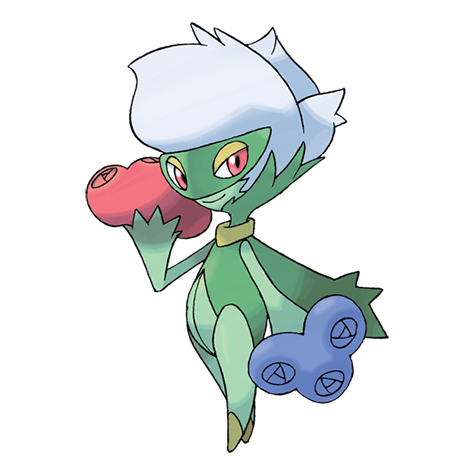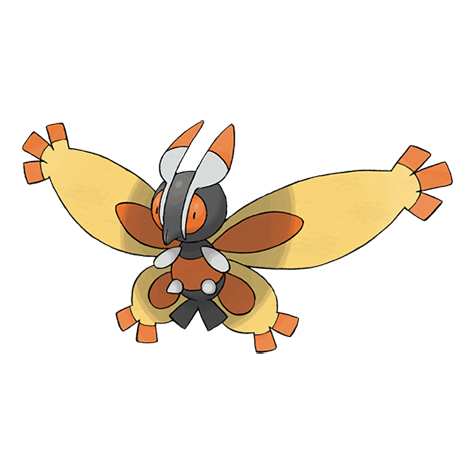Kricketot

Bug Type
When its antennae hit each other, it sounds like the music of a xylophone.
Kricketune

Bug Type
It signals its emotions with its melodies. Scientists are studying these melodic patterns.
Shinx

Electric Type
All of its fur dazzles if danger is sensed. It flees while the foe is momentarily blinded.
Luxio

Electric Type
Strong electricity courses through the tips of its sharp claws. A light scratch causes fainting in foes.
Luxray

Electric Type
Luxray’s ability to see through objects comes in handy when it’s scouting for danger.
Budew

Grass Poison Type
Over the winter, it closes its bud and endures the cold. In spring, the bud opens and releases pollen.
Roserade

Grass Poison Type
With the movements of a dancer, it strikes with whips that are densely lined with poison thorns.
Cranidos

Rock Type
Its hard skull is its distinguishing feature. It snapped trees by headbutting them, and then it fed on their ripe berries.
Rampardos

Rock Type
This ancient Pokémon used headbutts skillfully. Its brain was really small, so some theories suggest that its stupidity led to its extinction.
Shieldon

Rock Steel Type
Although its fossils can be found in layers of primeval rock, nothing but its face has ever been discovered.
Bastiodon

Rock Steel Type
This Pokémon is from roughly 100 million years ago. Its terrifyingly tough face is harder than steel.
Burmy

Bug Type
If its cloak is broken in battle, it quickly remakes the cloak with materials nearby.
Wormadam

Bug Grass Type
When Burmy evolved, its cloak became a part of this Pokémon’s body. The cloak is never shed.
Mothim

Bug Flying Type
It flutters around at night and steals honey from the Combee hive.
Combee

Bug Flying Type
It collects and delivers honey to its colony. At night, they cluster to form a beehive and sleep.
Vespiquen

Bug Flying Type
Its abdomen is a honeycomb for grubs. It raises its grubs on honey collected by Combee.
Pachirisu

Electric Type
A pair may be seen rubbing their cheek pouches together in an effort to share stored electricity.
Buizel

Water Type
It inflates the flotation sac around its neck and pokes its head out of the water to see what is going on.
Floatzel

Water Type
Its flotation sac developed as a result of pursuing aquatic prey. It can double as a rubber raft.
Cherubi

Grass Type
It evolves by sucking the energy out of the small ball where it had been storing nutrients.